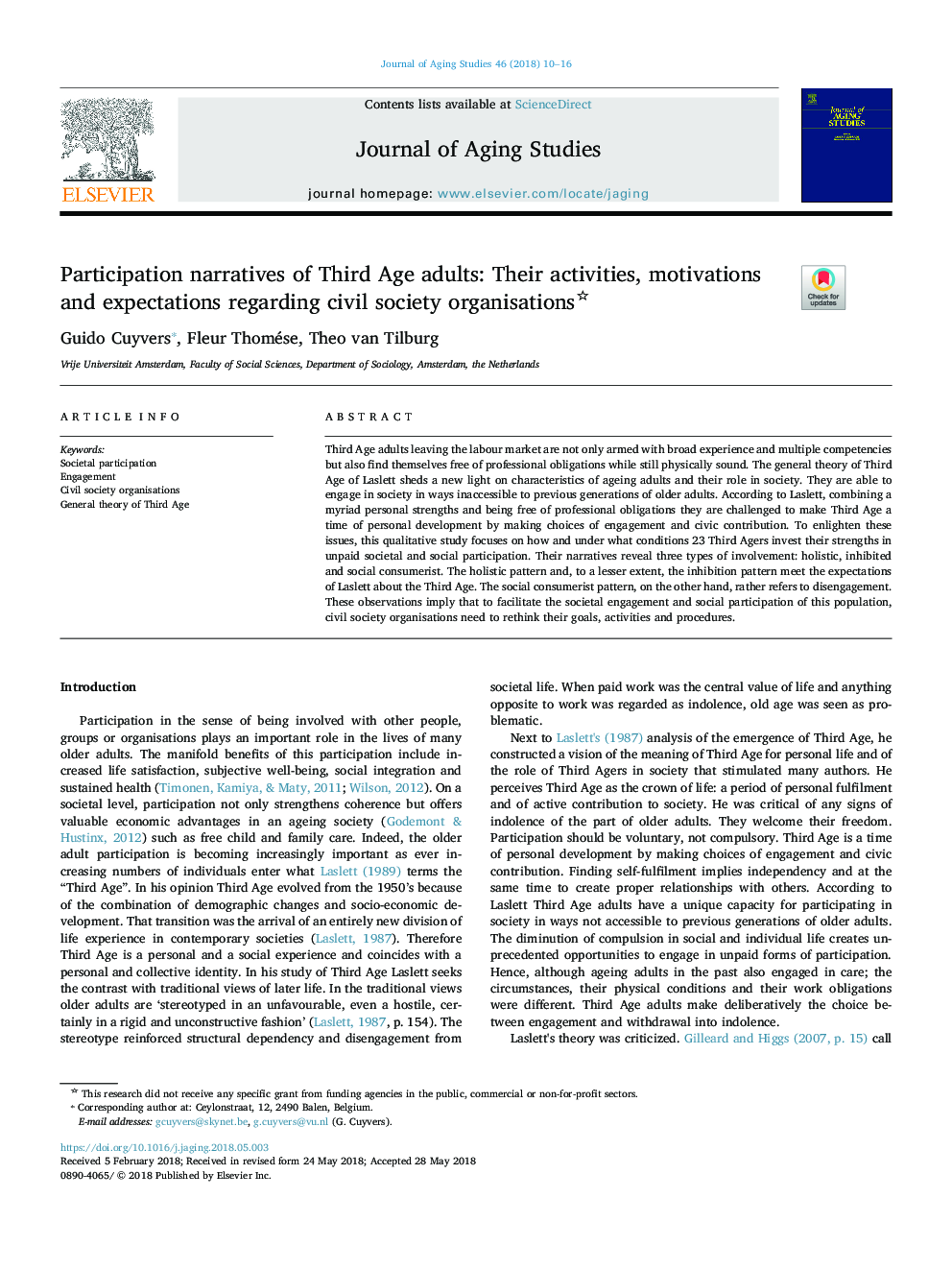| Article ID | Journal | Published Year | Pages | File Type |
|---|---|---|---|---|
| 7517472 | Journal of Aging Studies | 2018 | 7 Pages |
Abstract
Third Age adults leaving the labour market are not only armed with broad experience and multiple competencies but also find themselves free of professional obligations while still physically sound. The general theory of Third Age of Laslett sheds a new light on characteristics of ageing adults and their role in society. They are able to engage in society in ways inaccessible to previous generations of older adults. According to Laslett, combining a myriad personal strengths and being free of professional obligations they are challenged to make Third Age a time of personal development by making choices of engagement and civic contribution. To enlighten these issues, this qualitative study focuses on how and under what conditions 23 Third Agers invest their strengths in unpaid societal and social participation. Their narratives reveal three types of involvement: holistic, inhibited and social consumerist. The holistic pattern and, to a lesser extent, the inhibition pattern meet the expectations of Laslett about the Third Age. The social consumerist pattern, on the other hand, rather refers to disengagement. These observations imply that to facilitate the societal engagement and social participation of this population, civil society organisations need to rethink their goals, activities and procedures.
Related Topics
Health Sciences
Medicine and Dentistry
Geriatrics and Gerontology
Authors
Guido Cuyvers, Fleur Thomése, Theo van Tilburg,
